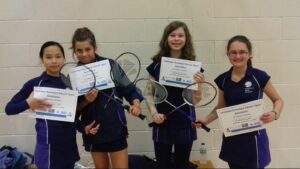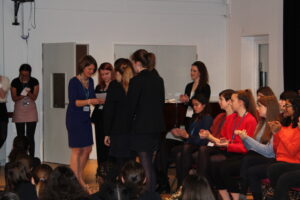My name is Martha and I became a Sydenham High school alumna in 2019. Since then, I’ve been at Lancaster University doing a degree in French Studies and Chinese. I am currently working as a British Council English Language Assistant (ELA) in Corsica and you can read about my first impressions here
More Tips About Studying Languages and Living Abroad
After several months on the beautiful island of Corsica, I am beginning to feel at home. I’m fully settled into my job as an English assistant in primary schools, and have had some free time to take in the French lifestyle. Being now more than half way through my assistantship, I’ve got a bit more experience to share. Whether you are currently studying languages, or just thinking about it, I hope I can give you an insight into studying abroad.
I’ll start with my most boring piece of advice- make a budget. From my experience you’ll be getting bits of money from all over the place- university grants, student loans and payment for work, and it can become overwhelming. Before, I had been living off a student loan, but this is the first time I’ve been making my own salary, so it’s a new responsibility to handle. On top of this, costs are different in different countries. My food shopping is more expensive here, but things like travelling and restaurants are noticeably cheaper. You’ll have to adjust your budget and work out how much you expect to spend in a month. Once you’ve got an idea of how much you are spending, and how much you can afford, you can relax and enjoy planning what you’ll do with your money. Save the student has some helpful tips about budgeting.
That being said, don’t let your financial organisation get in the way of enjoying yourself. In France, I’ve found that train and coach trips to be surprisingly cheap. Although I’ve found being without a car a bit challenging, I’ve visited every corner of Corsica using public transport, it just required some patience and planning. It’s important to make the most of what you’ve got. Much of Corsica is closed up when it’s not tourist season, but one of the best experiences I’ve had was sitting in a cafe after finding a museum (that I’d taken a three hour coach trip to visit) was closed. Feeling somewhat dejected, I ended up speaking with some elderly gentlemen who’d been in Corsica when it was liberated from the Italian occupation in 1943. They told me about their lives, as well as the history of the Corsican language and the story of the town we were in. It was an unexpected encounter, but gave me such an important insight into Corsican history, and (not to be too dramatic) life in general!
In a similar vein, make the most of break times, and time hanging around in the staff room, interactions at the supermarket and on the bus. In my primary schools the teachers don’t speak English. I’ve tried to use this to my advantage and practise my conversational skills with everyone I can. There are downsides to being the only English speaker though- it has meant that I’ve ended up leading the classes independently and have been managing the end of term assessments too. It’s not necessarily a bad experience, but it’s just something to bear in mind- if you’d prefer to be assisting a teacher rather than leading independently, you may prefer the experience in a high school.
This might seem contradictory to my advice about milking conversation out of every minor interaction, but also try to spend time solo. If you are at a university, it’ll be easy to spend all your time with other students, and if you are an assistant it’s easy to spend all your free time with the other assistants. I want to make it clear that I’ve met some lovely people like this, so I definitely recommend mixing with people who are in a similar situation to you. Nevertheless- beware! It may also mean you end up relying on a small group (and usually speaking in English!!) Travelling alone – when done right- is a lot of fun, and is a great chance to test your language skills. See this link for some tips about travelling alone
Don’t be afraid to be a tourist. It took me a while to get over the need to seem “French”. It’s hard to put a finger on it, but I knew how much of a tourist I looked like. I was embarrassed to go to the tourist spots, because I thought I needed to adjust to being a resident. But I’m so glad I’ve been making the most of my time, and in doing so have learnt a lot about France. Take photos and ask silly questions! If you’ve gone abroad to learn and enjoy yourself, then do just that! It’ll also help you to settle in, because sight-seeing helps you to get a feel of the place you’re in, and have some fun.
Finally, keep a diary of some kind, because so much will happen. I can’t believe how quickly time is passing and how many things I’ve done and seen. Even on an uneventful day it’s still interesting to write down the name of a new pastry I tried. Every day is filled with little new experiences that you might not even notice, so it’s great to have a record of them that you can look back on.
I hope that you find some of this information useful and interesting; as before, I am available to contact via GDST Life, if you have any questions about studying abroad, studying languages or studying at Lancaster!
Martha studied French, Spanish and English Literature at A-level and whilst at school she won the GDST Anne Hogg Modern Foreign Languages Prize in 2015 and the Irene Thomas Prize for Modern Languages in 2019. At school she was also a regular volunteer as part of our Language lessons partnership programme at Holy Trinity Primary School. In her first year at Lancaster, she won the Lola Maud Dalton Prize for the best-performing first-year student for Chinese.
.

